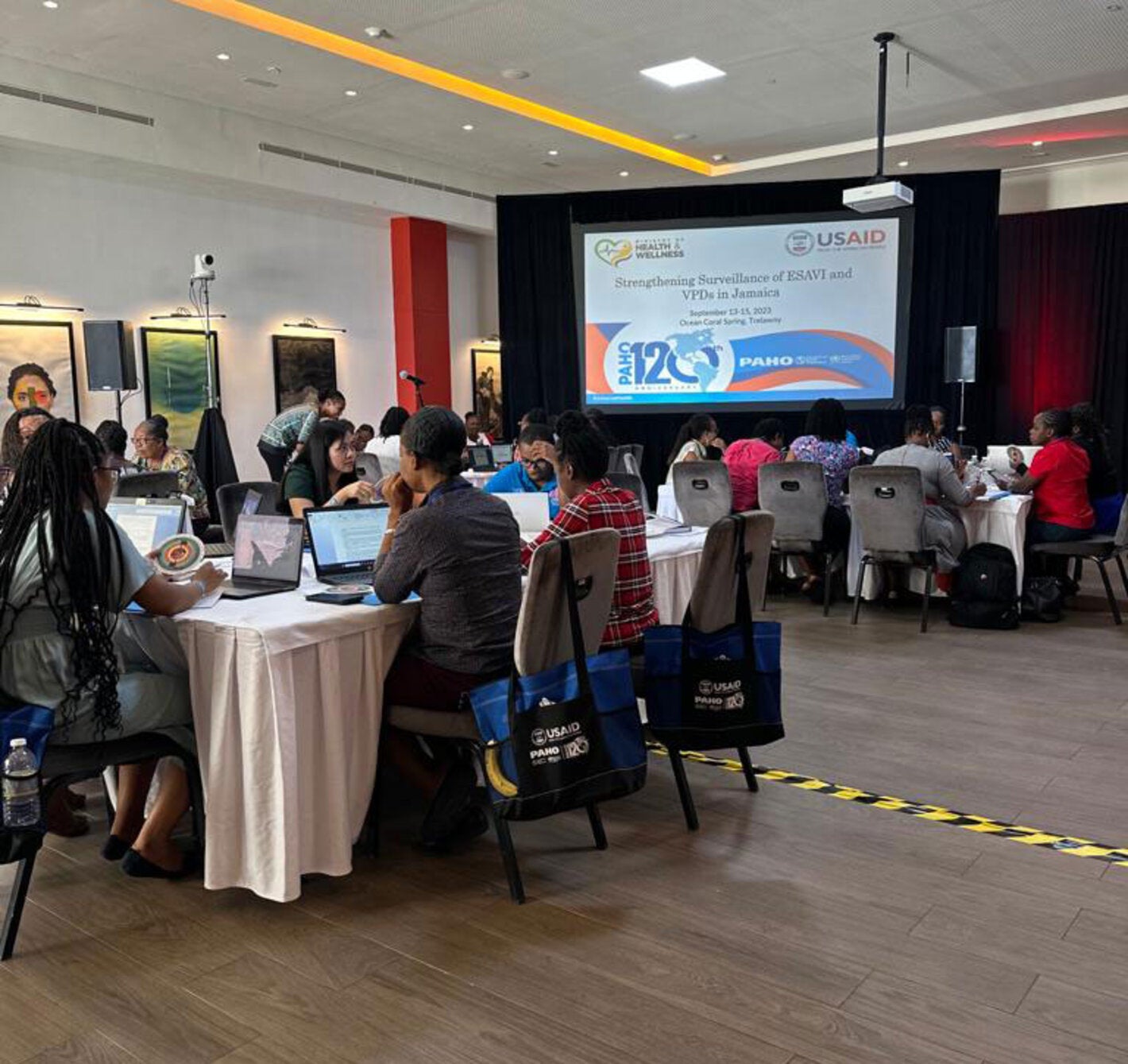
Kingston, Jamaica, September 15, 2023 (PAHO/WHO) - Throughout the COVID-19 pandemic, many countries intensified their vaccination programmes to minimize the loss of life and reduce serious long-term conditions caused by the SARS-CoV-2 virus. However, many of the vaccination campaigns conducted during this period also sparked discussions about vaccine-preventable diseases (VPD), as well as events supposedly attributable to vaccination or immunization (ESAVI).
These and other related topics were examined during an ESAVI and VPD capacity-building workshop held at the Ocean Bay Resort in Trelawny recently. The three-day workshop brought together numerous stakeholders within the healthcare sector to discuss Jamaica's ESAVI surveillance system. This surveillance system is designed to promptly identify any adverse events that might arise after immunization, enabling the monitoring and categorization of risks associated with a vaccine, the manufacturing process, transportation, storage, administration, as well as any preexisting conditions in the vaccinated individual. Its purpose is also to establish that there is no connection between the event and the vaccine.
The stakeholders also used the forum to advocate for the expansion of VPD programmes, especially for children and adults who may have missed the crucial vaccinations during the peak of the COVID-19 pandemic when efforts and resources were primarily focused on combatting the virus.
Jamaica's immunization schedule currently offers vaccination against 12 VPDs in conformance with the World Health Organization's (WHO) recommendations. These vaccines are capable of safeguarding individuals against illnesses like polio, tetanus (lockjaw), pertussis (whooping cough), and several others. However, the Ministry of Health and Wellness reports that since 2021, the country has not achieved its goal of immunizing 95% of children against polio. Similarly, the target for measles, mumps, and rubella (MMR) has not been met since 2020.
In his remarks, PAHO/WHO Representative for Jamaica, Bermuda and the Cayman Islands, Ian Stein, noted, “Within the framework of technical cooperation aimed at addressing the challenges posed by the COVID-19 pandemic and the subsequent introduction of COVID-19 vaccines, PAHO/WHO has devised a comprehensive training strategy to enhance national capabilities for monitoring Events Attributable to Vaccines and Immunization (ESAVI). This strategy has already demonstrated effectiveness in various countries and holds great promise for continued success.”
The workshop was facilitated in partnership with the Ministry of Health and Wellness and PAHO, and funded by the United States Agency for International Development (USAID) project.



